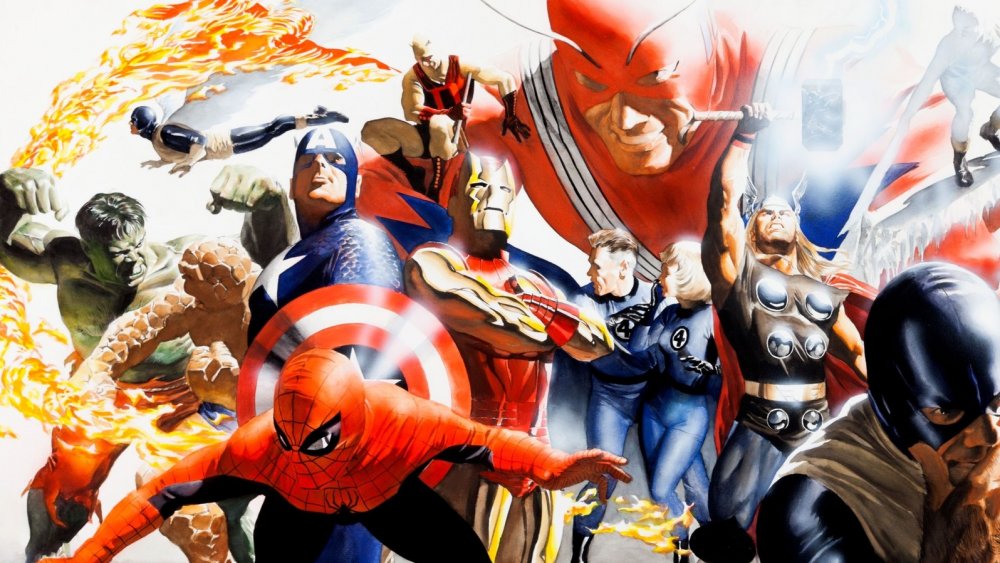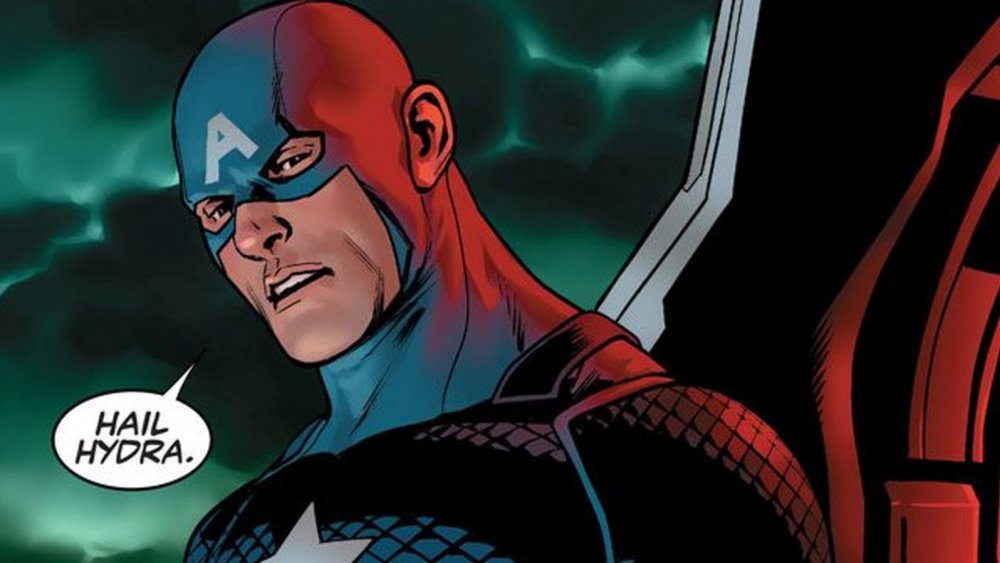The Comic Book Character That Resulted In Death Threats
Over the past number of years, superheroes have taken up more of the pop culture sphere than they have in a long time, thanks largely to the rise in popularity of cinema based on these characters. However, it's important to remember that this craze didn't come from just anywhere, and that the true origin of the superhero craze dates back nearly a century, to the earliest days of the comic book. The likes of Bill Finger, Stan Lee, and Steve Ditko, among others, created some of the greatest fictional protagonists in history, forever changing how society understands tales of good versus evil.
As a result, fans tend to gravitate strongly to these fictional beings (or, well, most of them), particularly when it comes to the heroes. Names like Superman, Spider-Man, and Wonder Woman, to name a few, have stood the test of time because of how much they've resonated with generations of readers, changing people's lives in the process. This is a wonderful thing, and provides some a welcomed excursion from the real world. However, fandom can also lead to serious overreaction and incredibly emotional responses towards those steering the hero's stories, should fans not agree with the direction being taken.
As recently as 2016, one character in particular, through one simple speech bubble, caused an immense wave of anger among comic book readers, culminating in a host of death threats towards the issue's writer.
Fans didn't take kindly to Captain America's alignment with Hydra
Created by Joe Simon and Jack Kirby, Captain America is one of Marvel Comics' biggest names and, in recent years, thanks partially to his Marvel Cinematic Universe equivalent, has become one of its tried and true poster boys. Although, his popularity isn't new: it dates all the way back to World War II, where Steve Rogers became a symbol of hope, freedom, and justice in the fight against the Nazi regime, as represented on the comic page as the villainous Hydra faction. He's undergone some slight changes in the decades since, but, for the most part, his moral compass remained intact ... that is, until writer Nick Spencer took over.
In May of 2016, Captain America: Steve Rogers No. 1 hit comic book stands everywhere, promising fans a refreshing take on the Sentinel of Liberty, but there was no way to prepare for the whirlwind of emotions die-hard Cap fans were about to endure. He seemed his typical, freedom-loving self until the end of the issue, where he did the unthinkable: he aligned himself with his greatest enemies, by proclaiming "Hail Hydra," shocking readers everywhere.
Now, obviously, the series eventually did away with this alliance with the Nazi offshoot group, and returned to the status quo. For a time, though, the internet lost their collective minds. Spencer immediately found himself caught in the fan's crosshairs, who fired back at the comic writer (largely on Twitter), with remarkable anger, going as far as sending him death threats for his creative choice (via The Telegraph). Many worked tirelessly to promote #SayNOtoHYDRACap. Others, meanwhile, undertook some incredibly thorough research, pinning down how Cap's change of heart was a gross betrayal of his character, but also a slap in the face to the people who created him as a form of disgust with the real-life Nazi party of World War II.
It's one thing to produce a piece of media that fans don't enjoy, but to make something that creates this amount of controversy is incredibly rare. Thankfully, Nick Spencer made it out of the fire unscathed, and Captain America is back to his old, freedom-loving self, leaving this story as a cautionary tale of how fan passion can lead to frightening outrage.

